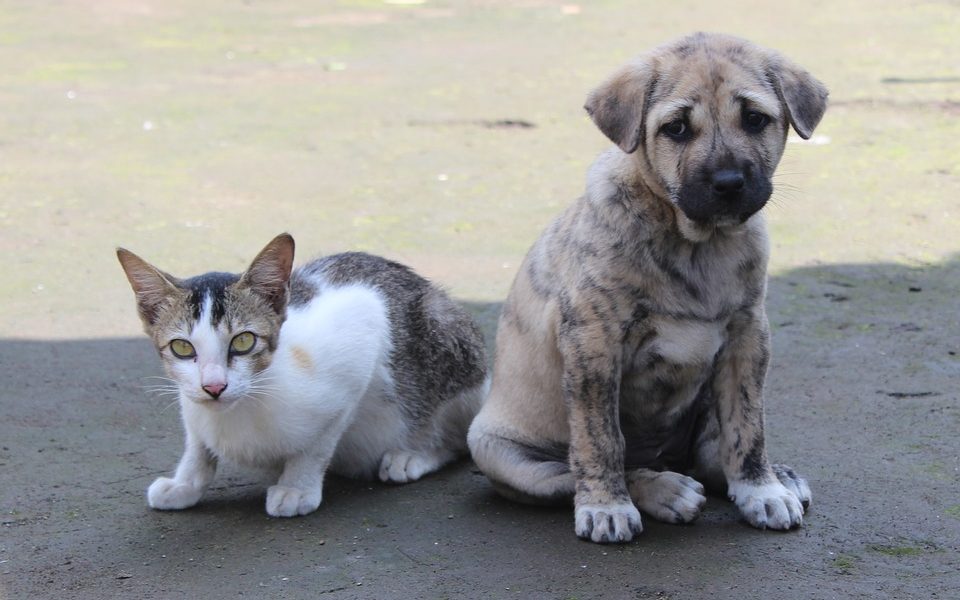Since August 2021 for March 2022, an undercover investigator was employed at the facility and tasked with working on more than 70 toxicity studies commissioned by more than two dozen pharmaceutical companies involving more than 6,000 animals. Some of the glaring findings revealed throughout the investigation include:
- At least two primates accidentally hanged themselves in restraint chairs.
- The dogs continued to be dosed with the substances even when they were vomiting, shaking, and had high fevers and labored breathing.
- The lab vet did not always assess or treat seriously ill dogs and primates, some groaning in pain, due to personal inconveniences.
The animals spent their days behind bars and were subjected to painful procedures such as force-feeding substances via stomach tubes, injections and multiple blood draws. Young primates were often restrained in restraint chairs for long periods of time during these procedures. Most animals were killed at the end of the studies, as is the case with any drug test.
Nearly 90% of drugs tested on animals ultimately fail in human trials, with about half of these failures due to unforeseen human toxicity, although no toxicity was observed in animals. A Example unfolded during the investigation when Aligos Therapeutics ended a drug chase tested on mice and primates at Inotiv while the HSUS investigator was there. The biopharmaceutical company halted testing due to unexpected toxicity in a human clinical trial. One person was hospitalized and three others suffered adverse effects.
Non-animal approaches, such as organic chip technologies, artificial intelligence, 3D printing, and various other approaches, alone or in combination, are proven to provide superior results that will ultimately improve success rates. medicines for humans while sparing animals. The largest organ chip study conducted to date have demonstrated that liver chips detect the toxicity of nearly seven out of eight drugs that have been shown to be toxic in human patients, even after animal testing failed to reveal the drugs to be toxic in human patients. animal models.
Even more urgently, 80 beagle puppies are still being used in toxicity tests that involve forcing them to ingest a drug through a stomach tube every day for months. The first wave of dogs is expected to be culled in mid-May, and HSUS and HSLF are calling for their immediate release from the lab. Crinetics Pharmaceuticals commissioned Inotiv to perform these tests. The HSUS and HSLF are also seeking the release of two dogs used by workers to perform procedures, called livestock animals. Dogs have been used for practice procedures for years.
“The disturbing findings from this facility cannot be ignored. We are calling for the release of the beagles we know are suffering from in the lab today and will soon be euthanized, but this is just the start of our work,” said kitty blockCEO and President of the Humane Society of United States. “We need to address the root cause of this suffering. This seems to be one of the only areas of science where the failure to innovate and bring about change is accepted and, at times, encouraged. We hope that sharing the fate of these animals to accelerate FDA and pharmaceutical industry changes to replace outdated animal testing with superior modern technologies.”
“Our federal government needs to invest in good science in the form of effective, humane, non-animal testing methods to replace these tragic animal tests. In many cases, non-animal testing is more reliable, faster, and more cost-effective. than existing animal methods most commonly accepted by our federal government,” said Sara Amundson, Chairman of the Legislative Fund of the Humane Society. “It’s time for the FDA to accelerate the move away from animal testing in the regulated sector. We must ensure a better future for animals and people.”
Inotiv is one of hundreds of laboratories performing animal experiments. It is one of the biggest and continues to grow.
Company dog breeding at Cumberland, Virginiahas been cited for numerous animal welfare law violations, prompting the Virginia legislature to spend five bills to increase the protection of animals in laboratory breeding facilities, recently enacted by the government. Glenn Youngkin.
In addition to releasing the 82 dogs, HSUS and HSLF are calling on the company to research alternatives, stop testing all animals in this lab, and find suitable placement for them.
Founded in 1954, the Humane Society of United States leads the great battles to end the suffering of all animals. With millions of supporters, we take on puppy mills, factory farms, trophy hunts, animal testing and other cruel industries. Together with our affiliates, we rescue and care for tens of thousands of animals each year through the work of our animal rescue team and other hands-on animal care services. We fight against all forms of animal cruelty to realize the vision behind our name: a humane society.
Learn more about our work at humanesociety.org. To subscribe to Kitty Block’s Blog,A human world. Follow HSUS Media Relations at Twitter. Read the winner All the animals magazine. Listen to the Human Voices Podcast.
The Humane Society Legislative Fund works to pass animal welfare laws at the state and federal levels, educate the public about animal welfare issues, and support human candidates for office. Founded in 2004, HSLF is incorporated under Section 501(c)(4) of the Internal Revenue Code as a separate lobbying entity from the Humane Society of the United States.
Visit us on the web at hslf.orgread our blog on hslf.org/blog and follow us on Facebook
SOURCE Humane Society Legislative Fund; human society of United States
 Christ Yoder
Christ Yoder



/cloudfront-us-east-1.images.arcpublishing.com/gray/P5XQ6ZYQXVAM5MQ7O2X7G7SRHI.jpg)